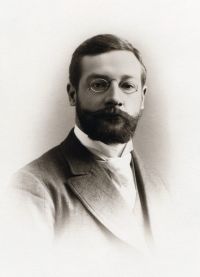what is psychology?
Psyche + logia = psychology (the scientific study of the mind or soul)
parapsychology
is the study of alleged mental phenomena such as telepathy
empirical
based on testing or experience, capable of being verified or disproved by observation or experiment
Empirical methods
include the processes of collecting and organizing data and drawing conclusions about those data
Empirical research
Data is collected and analyzed on an area of research interest using scientific measures to gain knowledge for knowledge’s sake or to promote changes in behavior or mental states.
Basic Research
Research is conducted to expand knowledge on an area of interest without seeking to promote any changes in the behavior or mental state of individuals or groups.
Applied Research
Research findings are applied towards human well-being to change the behavior or mental state of individuals or groups.
Be ready to learn
You cannot learn well when you are tired, when you are under stress, or if you are abusing alcohol or drugs. Try to keep a consistent routine of sleeping and eating. Eat moderately and nutritiously, and avoid drugs that can impair memory, particularly alcohol. There is no evidence that stimulants such as caffeine, amphetamines, or any of the many "memory enhancing drugs" on the market will help you learn. Memory supplements are usually no more effective than drinking a can of sugared soda, which also releases glucose and thus improves memory slightly.
Rehearsal
is the process of repeating the information that is to be learned over and over again. Although simple repetition does help us learn, psychological research has found that we acquire information most effectively when we actively think about or elaborate on its meaning and relate the material to something else.
Elaborate
by connecting the information to other things that you already know. If you want to remember the different schools of psychology, for instance, try to think about how each of the approaches is different from the others. As you make the comparisons among the approaches, determine what is most important about each one and then relate it to the features of the other approaches.
Self-reference effect
a phenomenon based on an important study showing the effectiveness of elaborative encoding by Rogers, Kuiper, and Kirker (1977). They found that students learned information best when they related it to aspects of themselves. This research suggests that imagining how the material relates to your own interests and goals will help you learn it.
Method of loci
involves linking each of the pieces of information that you need to remember to places that you are familiar with. You might think about the house that you grew up in and the rooms in it. Then you could put the behaviorists in the bedroom, the structuralists in the living room, and the functionalists in the kitchen. Then when you need to remember the information, you retrieve the mental image of your house and should be able to "see" each of the people in each of the areas.
Spacing effect
is the process of studying in shorter periods of time. Both humans and animals more easily remember or learn material when they study the material in several shorter study periods over a longer period of time, rather than studying it just once for a long period of time. Cramming for an exam is a particularly ineffective way to learn.
metacognition
Our ability to adequately assess our own knowledge
Dr. Martin studies a problem in order to better understand the underlying mechanics and processes. What type of research is being conducted?
Basic research
Psychologists who work with airlines to determine how many hours a pilot can fly before exertion impairs their judgement is conducting what type of research?
Applied research
The ability to assess your own knowledge is:
Metacognition
An effective strategy for successful learning is:
Rehearsal of content and relating it to something we are familiar with.
Learning by relating knowledge to aspects of oneself is callled:
Self-reference effect
Wilhelm Wundt
He systematically studied topics such as attention span, reaction time, vision, emotion, and time perception.
Wilhelm Wundt
Wundt believed that the study of conscious thoughts would be the key to understanding the mind
Wilhelm Wundt
Wundt’s primary method of research was ” introspection,”
introspection
which involves training people to concentrate and report on their conscious experiences as they react to stimuli. This approach is still used today in modern neuroscience research; however, many scientists criticize the use of introspection for its lack of objectivity.
Structuralism By:Edward Bradford Titchener (no longer in practice)
This theory attempted to understand the mind as the sum of different underlying parts and focused on three things:
(1) the individual elements of consciousness;
(2) how these elements are organized into more complex experiences; and
(3) how these mental phenomena correlate with physical events.

Functionalism : founded by William James in the late 19th century
Built on structuralism’s concern with the anatomy of the mind, functionalism led to greater concern with the functions of the mind, and later, to behaviorism.
Functionalism considers mental life and behavior in terms of active adaptation to the person’s environment.
examining the ways in which the mind adapts to changing situations and environments.
In functionalism, the brain is believed to have evolved for the purpose of bettering the survival chances of its carrier by acting as an information processor: its role is essentially to execute functions similar to the way a computer does.
Psychoanalytic Theory - Sigmund Freud
Freud theorized that many of his patients’ problems arose from the unconscious mind. In Freud’s view, the unconscious mind was a repository of feelings and urges of which we have no awareness. Gaining access to the unconscious, then, was crucial to the successful resolution of the patient’s problems. According to Freud, the unconscious mind could be accessed through dream analysis, by examinations of the first words that came to people’s minds, and through seemingly innocent slips of the tongue.
Psychoanalytic theory focuses on the role of a person’s unconscious, as well as early childhood experiences, and this particular perspective dominated clinical psychology for several decades (Thorne & Henley, 2005). Many of Freud's ideas are controversial, but his historical significance and contributions to clinical practice merit his inclusion in a discussion of the historical movements within psychology.
Behaviorism - Pavlov
(1849–1936). Pavlov studied a form of learning behavior called a conditioned reflex, in which an animal or human produced a reflex (unconscious) response to a stimulus and, over time, was conditioned to produce the response to a different stimulus that the experimenter associated with the original stimulus. The reflex Pavlov worked with was salivation in response to the presence of food. The salivation reflex could be elicited using a second stimulus, such as a specific sound, that was presented in association with the initial food stimulus several times. Once the response to the second stimulus was “learned,” the food stimulus could be omitted. Pavlov’s “classical conditioning” is only one form of learning behavior studied by behaviorists.
this guy invented clicker training
Behaviorism - John B. Watson (1878–1958)
was an influential American psychologist whose most famous work occurred during the early 20th century at Johns Hopkins University. While Wundt and James were concerned with understanding conscious experience, Watson thought that the study of consciousness was flawed. Because he believed that objective analysis of the mind was impossible, Watson preferred to focus directly on observable behavior and try to bring that behavior under control. Watson was a major proponent of shifting the focus of psychology from the mind to behavior, and this approach of observing and controlling behavior came to be known as behaviorism. A major object of study by behaviorists was learned behavior and its interaction with the inborn qualities of the organism.
Behaviorism -B. F. Skinner (1904–1990)
was an American psychologist. Like Watson, Skinner was a behaviorist, and he concentrated on how behavior was affected by its consequences. Therefore, Skinner spoke of reinforcement and punishment as major factors in driving behavior. As a part of his research, Skinner developed a chamber that allowed the careful study of the principles of modifying behavior through reinforcement and punishment. This device, known as an operant conditioning chamber (or more familiarly, a Skinner box), has remained a crucial resource for researchers studying behavior (Thorne & Henley, 2005). Skinner’s focus on positive and negative reinforcement of learned behaviors had a lasting influence on psychology that has waned somewhat since the growth of research in cognitive psychology. Despite this, conditioned learning is still used in human behavioral modification. Skinner’s two widely read and controversial popular science books about the value of operant conditioning for creating happier lives remain thought-provoking arguments for his approach (Greengrass, 2004).
in other words, reward behaviors you'd like to see more often.
Humanism - Maslow and Rogers
ome psychologists began to form their own ideas that emphasized personal control, intentionality, and a true predisposition for “good” as important for our self-concept and our behavior. Humanism is a perspective within psychology that emphasizes the potential for good that is innate to all humans.
Abraham Maslow humanism
proposing a hierarchy of human needs in motivating behavior. Maslow asserted that so long as basic needs necessary for survival were met (e.g., food, water, shelter), higher-level needs (e.g., social needs) would begin to motivate behavior. the highest-level needs relate to self-actualization, a process by which we achieve our full potential.
Carl Rogers humanism
emphasized the potential for good that exists within all people. three features to maximize the effectiveness of this particular approach: unconditional positive regard, genuineness, and empathy. Unconditional positive regard refers to the fact that the therapist accepts their client for who they are, no matter what he or she might say. Provided these factors, Rogers believed that people were more than capable of dealing with and working through their own issues
if you are in a safe place you can work through your shit
The Cognitive Revolution
By the 1950s, new disciplinary perspectives in linguistics, neuroscience, and computer science were emerging, and these areas revived interest in the mind as a focus of scientific inquiry. This particular perspective has come to be known as the cognitive revolution
suggests that people have harder time remembering things if they do not relate to them.





